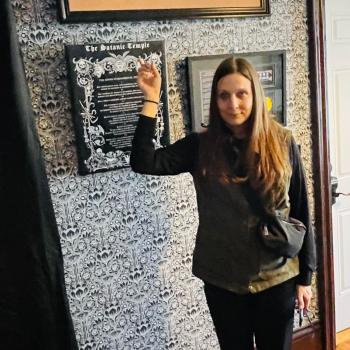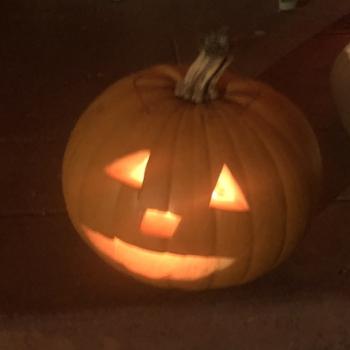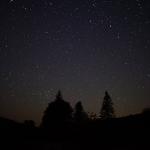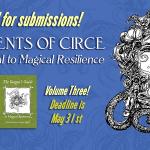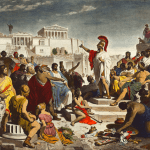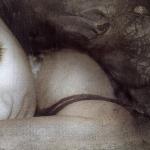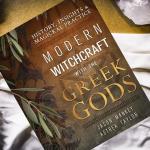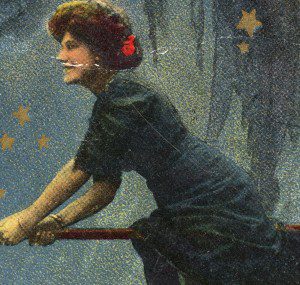 Over the weekend I commented on an article about a group of Christians protesting Halloween celebrations in public schools. My comment was short and I didn’t think much about it. I simply wrote “most of Halloween is Catholic anyways” and then went about my afternoon. A short time later someone left me a comment saying “Halloween is 100% pagan.” I tried to be nice and explain that it wasn’t, but I was arguing with a brick wall. To the commenter in question, Halloween is strictly a pagan (her emphasis, not mine) holiday. She was even nice enough to link to an article written by Evangelical Christians to prove her point.
Over the weekend I commented on an article about a group of Christians protesting Halloween celebrations in public schools. My comment was short and I didn’t think much about it. I simply wrote “most of Halloween is Catholic anyways” and then went about my afternoon. A short time later someone left me a comment saying “Halloween is 100% pagan.” I tried to be nice and explain that it wasn’t, but I was arguing with a brick wall. To the commenter in question, Halloween is strictly a pagan (her emphasis, not mine) holiday. She was even nice enough to link to an article written by Evangelical Christians to prove her point.
The young lady in question was one of us, and I can certainly understand her confusion. Halloween completely feels like a pagan holiday, and it’s been categorized as one for several decades now. Lazy writers make the claim, it’s a constant presence on social media, and churches parrot that information because Goddess forbid there’s a holiday out there Jesus hasn’t been shoe-horned into. It feels like there’s an entire industry dedicated to simplifying Halloween to one specific origin point, so I sympathize, but claiming that Halloween is “100% pagan” is not a tenable argument.
To start with the word “Halloween” isn’t even an ancient pagan word, it’s a Christian one and only dates to the mid-1700’s. It just means “holy evening,” and while I agree with the sentiment that Halloween is holy, it’s important to remember that Christians were the one using the term. Are there bits and piece of Halloween that most likely date back to an ancient pagan celebration? Sure, I think so, but nothing exists in a vacuum. Most modern holidays have all kinds of layers and are an amalgamation of various cultures, traditions, religions, and market forces (never underestimate the desire to turn something into a money making enterprise).
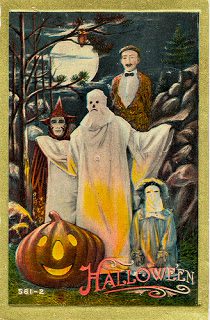 Now if someone wanted to argue that Samhain is a “100% pagan” holiday I’d find myself in total agreement. Samhain was celebrated by the Celts who practiced an ancient pagan religion. Today Samhain is observed by most Modern Pagans. It’s not a continual chain, there were no Celtic pagans secretly practicing Samhain rituals in 1802, but many Modern Pagans look to the celebrations of Celtic Samhains past for inspiration. Samhain and Halloween share a lot of things, but they aren’t quite the same holiday. Halloween is a big mess of secular fun surrounded by ghosts, goblins, and candy. Samhain is a spiritual observance. We Pagans don’t “own Halloween” because of its origins. Holidays are made by the individuals who celebrate them and are constantly reinterpreted and modernized, Halloween is no exception.
Now if someone wanted to argue that Samhain is a “100% pagan” holiday I’d find myself in total agreement. Samhain was celebrated by the Celts who practiced an ancient pagan religion. Today Samhain is observed by most Modern Pagans. It’s not a continual chain, there were no Celtic pagans secretly practicing Samhain rituals in 1802, but many Modern Pagans look to the celebrations of Celtic Samhains past for inspiration. Samhain and Halloween share a lot of things, but they aren’t quite the same holiday. Halloween is a big mess of secular fun surrounded by ghosts, goblins, and candy. Samhain is a spiritual observance. We Pagans don’t “own Halloween” because of its origins. Holidays are made by the individuals who celebrate them and are constantly reinterpreted and modernized, Halloween is no exception.
When arguing history the biggest mistake anyone can make is to argue in absolutes. When someone argues in absolutes they’ve immediately placed their back against a wall with no way out. Arguing that “Halloween is mostly a pagan holiday in origin” can be done, arguing that it’s “100% pagan” cannot (at least not successfully, to be 100% pagan it would need a pagan name). I understand the desire to love, own and cherish Halloween, but it has to be done intelligently. If someone’s Halloween is “100% pagan” that’s OK, but it doesn’t give them the right to lay their interpretation down over everyone else’s.
I love that Halloween “feels” Pagan, and I understand wanting to claim all of the holiday, but it can’t be done, at least not honestly. Christmas feels Pagan to me too (and I’ve always found its origins to be far more ancient pagan than those of Halloween) but I’d never try and claim ownership of it. In the days leading up to Halloween and Samhain we are all probably going to read a lot of dumb comments about the holiday. When we respond to those comments let’s make sure we are doing it as intelligently as possible.





